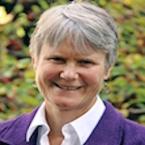Course description
Religions have functioned throughout human history to inspire and justify the full range of human agency from the heinous to the heroic. Their influences remain potent here in the twenty-first century in spite of modern predictions that religious influences would steadily decline in concert with the rise of secular democracies and advances in science. Professionals in a wide range of fields need to understand these complex religious influences in order to understand modern human affairs across the full spectrum of endeavors in local, national, and global arenas. In this course, we focus on religious literacy in the professions of journalism, education, and humanitarian action, but the frameworks that are learned are applicable in other professional arenas as well. How can a nuanced and complex understanding of religion enhance the ability of professionals in these fields to serve their populations? Students learn a critical theory method for comprehending the ways that religions shape, and are shaped by, different social, cultural, and political contexts and apply that method to case studies in diverse professional sectors. As a way to ground their explorations, students each choose one of the professions outlined above and one of the following issues to focus upon: racial justice, climate change, or Native and Indigenous rights. For example, a student may wish to focus on the profession of journalism and the issue of climate change, or the profession of education and the issue of racial justice. For complete and current details about this Harvard Extension course, see the description in the DCE Course Search.





